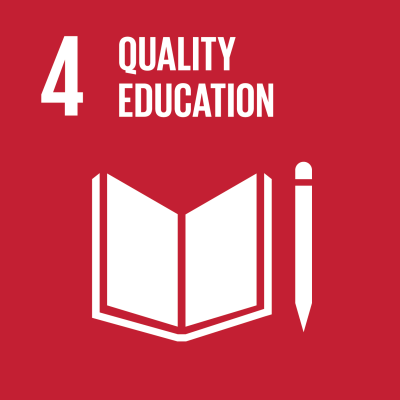 BRAC Ultra-Poor Graduation
Putting the Furthest Behind First
BRAC Ultra-Poor Graduation
Putting the Furthest Behind First
Challenges
People hit hardest by poverty rarely face one challenge. They confront a multitude of interconnected problems. They’re often simultaneously struggling to cope with food shortages, poor health, social stigma, homelessness and a lack of basic services like clean water and sanitation. They are often the people most vulnerable to disasters, like drought, flooding or conflict, and they frequently don’t have the skills, resources or savings to respond to this kaleidoscope of challenges.
Towards a Solution
Ultra-poor graduation approach is a solution that can help the tens of millions of ultra-poor people to earn a living and transform their lives. It’s a solution that have been developed over 20 years. It has been adapted for use in over 37 countries, approved by independent researchers, and subjected to rigorous testing led by the London School of Economics. At the core of BRAC’s Graduation approach are four foundational pillars:
- Social protection- The social protection pillar ensures that for at least the duration of the program, participants are protected by a safety net.
- Livelihoods promotion- Livelihoods promotion ensures that participants can earn a sustainable income, taking the form of an asset transfer, a small plot of land or support for a micro-business.
- Financial inclusion- The financial inclusion pillar improves the participant’s financial skills, helping them understand how to manage income and expenditure, and connecting them with financial services.
- Social empowerment- The social empowerment pillar helps participants increase their confidence, integrate into their community, and develop a range of life-skills.
In addition to the four pillars of Graduation, BRAC uses the following principles, identified in its original Graduation pilots in Bangladesh and elsewhere to design effective programs.
- Adaptation to the local context targeting the poorest or a specific vulnerable population
- Time-bound interventions with systemic linkages to an ecosystem of support that enables participants to thrive after Graduation
- Robust Graduation criteria adapted to the local poverty landscape and monitoring and mentorship by a trained coach or staff member
The Graduation program is being delivered at scale in Bangladesh for the past 15 years, reaching 1.9 million households, in 50 of the country’s districts, with a 95% success rate. In addition to the success of the program itself, BRAC’s work in with Graduation in Bangladesh has also allowed it to conduct the longest-running randomized control trial (RCT) in the history of Graduation programs worldwide. In recent years BRAC has been supporting partners who want to learn how to establish their own Graduation programs, or to integrate Graduation approaches to streamline and focus their social protection programs. Currently BRAC is providing technical assistance to Graduation programs in Kenya, Egypt, Lesotho, Philippines, and Uganda.
As it relates to scale and sustainability, adopting a Graduation approach is a logical step in many emerging social protection frameworks. Graduation components can be embedded within national development strategies, particularly within a weak or fragmented social protection system. Graduation enhances the visibility of the poorest, providing a ‘big push’ and placing them on an upward trajectory from extreme poverty towards formal social protection services. In this model, households do not exit from programmatic support into “no support”, but instead move from receiving poverty-alleviating assistance to accessing a broader range of social services, which facilitate economic opportunities. While NGOs have traditionally been the lead implementers of the Graduation approach, governments have also launched Graduation style approaches at scale - including governments of Ethiopia, Peru, Paraguay, Costa Rica, and most notably, Chile. At scale with governments, successful Graduation approaches leverage various existing social protection instruments, including cash transfers, community development models, health insurance funds, pension funds, and livelihoods interventions. Graduation can be seen as a viable, scalable pathway in increasing human capital programs, starting at the local level, all the way to national scale.
Contact Information
Countries involved
Supported by
Implementing Entities
Project Status
Project Period
URL of the practice
Primary SDG
Primary SDG Targets
Secondary SDGs
Secondary SDG Targets
Similar Solutions
| NAME OF SOLUTION | Countries | SDG | Project Status | |
|---|---|---|---|---|
360-Degree Awareness Tool to Fight COVID-19 Raising awareness and ensuring public wellbeing through a one-stop platform for fighting COVID-19 in Bangladesh |
Bangladesh | 16 - Peace and Justice Strong Institutions | Ongoing | View Details |
A-Card Initiative |
Bangladesh | 10 - Reduced Inequalities | Completed | View Details |
Accelerating Digital Transformation in All Ministries in Bangladesh Promoting the rapid design and implementation of plans to digitize all ministries and subordinate government institutions in Bangladesh |
Bangladesh | 10 - Reduced Inequalities | Ongoing | View Details |
Accelerator Labs Network Following collective intelligence methods to address emerging sustainability challenges and the growing demand for local solutions |
Bangladesh | 08 - Decent Work and Economic Growth 13 - Climate Action | Ongoing | View Details |
Accessibility ToolKit Promoting accessibility as a cornerstone for inclusive digital development in Bangladesh. |
Bangladesh | 08 - Decent Work and Economic Growth | Completed | View Details |